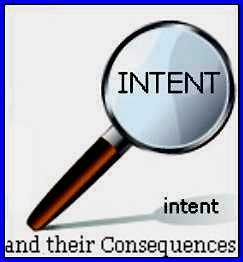Definitions Under The Act
PART I —DEFINITIONS AND INTERPRETATION
I (I) In this Act: “beneficiary” means
(a) a person named in a will to receive all or part of an estate, or
(b) a person having a beneficial interest in a trust created by a will;
The definition of “beneficiary” is restricted to only those who benefit by a will or a trust in a will. See the definition of “designated beneficiary” for those who benefit under benefit plans. “benefit”, in relation to a benefit plan, means a benefit payable under a benefit plan on the death of a participant;
benefit plan” means
(a) any one or more of the following for the benefit of employees or former employees
of an employer, agents or former agents of an employer, the dependants of any of
them or a designated beneficiary:
(i) a pension plan or retirement plan;
(ii) a welfare fund or profit-sharing fund;
(iii) a trust, scheme, contract or arrangement,
(b) a fund, trust, scheme, contract or arrangement for the payment of an annuity for life or for a fixed or variable term,
(c) a retirement savings plan or retirement income fund registered under the Income Tax Act (Canada),
(d) a fund, trust, scheme, contract or arrangement described in the regulations made under this Act, or
(e) a tax-free savings account within the meaning of the Income Tax Act (Canada),
whether it was created before, on or after this definition comes into force;
chief executive officer” means the chief executive officer under the Vital Statistics Act,
“court” means the Supreme Court;
“declarant” means a person who makes a small estate declaration;*
“descendant” means all lineal descendants through all generations;
(The definition of “descendant” replaces the term “issue”. Section 81 of the Estate Administration Act, R.S.B.C 1996, c. 122 (the “EAA”) defined “issue” as including “all lineal descendants of the ancestor”. Neither term is defined in the Trustee Act, R.S.B.C 1996, c. 464.
“designated beneficiary” means a person to whom or for whose advantage a benefit is payable by a
designation; “designation” means the designation of a designated beneficiary in accordance with section 85)
[designated beneficiaries]; “estate” means the property of a deceased person; “foreign grant” means a grant of probate, including letters of verification issued in Quebec, or a grant of
administration or other document purporting to be of the same nature issued by a court outside
British Columbia; “foreign personal representative” means a personal representative to whom a foreign grant has been
made;
“gift” includes
(a) a beneficial devise or bequest, and
(b) an appointment affecting property other than the appointment of a person as executor of the will;
“instrument” includes a testamentary instrument and other legal documents, but does not include an instrument, other than a will, to which the Insurance Act applies;
“intestate” means a person who dies without a will;
“intestate estate” means the estate of a person who dies without a will;
“intestate successor” means a person who is entitled to receive all or part of an intestate estate;
“land” includes buildings and fixtures, and every right, title, interest, estate or claim to or in land;
“Nisga’a citizen” has the same meaning as in the Nisga’a Final Agreement;
“Nisga’a Final Agreement” has the same meaning as in the Nisga’a Final Agreement Act’,
“Nisga’a Lands” has the same meaning as in the Nisga’a Final Agreement;
“Nisga’a law” has the same meaning as in the Nisga’a Final Agreement;
“Nisga’a Lisims Government” has the same meaning as in the Nisga’a Final Agreement;
“Nisga’a Village Government” has the same meaning as in the Nisga’a Final Agreement;
“nominee” includes
(a) a committee acting under the Patients Property Act granted power over financial affairs,
(b) an attorney acting under an enduring power of attorney as described in section 8 [enduring power of attorney] of the Power of Attorney Act,*
(c) a representative acting under a representation agreement made under
(i) section 7( I )(b) [standard provisions] of the Representation Agreement Act, or (ii) section 9( I )(g) [other provisions] of the Representation Agreement Act; and
(d) a person appointed under section 51 (2) [mentally incompetent Indians] of the Indian
Act (Canada) or the Minister of Indian Affairs and Northern Development;
“personal property” means every kind of property other than land;
“property” means land and personal property;
“registrable charge” means a charge created by an order of the court under section 33(2) [retention of
spousal home] and made effective by registration in a land title office under section 34 [registrable
charges];
“representation grant” means
(a) the grant of probate of a will in British Columbia, whether made for general, special or limited purposes,
(b) the grant of administration of the estate of a deceased person in British Columbia, with or without will annexed, whether made for general, special or limited purposes,
(c) the reseating in British Columbia of a grant of probate of a will or a grant of administration of the estate of a deceased person,
(d) an ancillary grant of probate, or
(e) a small estate declaration filed with a registrar of the court under Division 2 [Small Estate Administration] of Part 6 [Administration of Estates]*
“security interest” means an interest in property that secures payment or performance of an
obligation;
“small estate” means an estate composed wholly of personal property of less than a prescribed value as of thedate of death;
*
“small estate declaration” means a statutory declaration made in the form as set out in the Supreme Court Civil Rules respecting a small estate;
Spousal Home
(a) a parcel of land, owned or owned in common by the deceased person and not leased
to another person, that
(i) is shown as a separate taxable parcel on a taxation roll for the current year
prepared under the Taxation (Rural Area) Act or on an assessment roll used
for the levying of taxes in a municipality, and (ii) has as improvements situated on it a building assessed and taxed in the
current year as an improvement, in which the deceased person and his or
her spouse were ordinarily resident,
(b) a share owned or owned in common by the deceased person in a corporation whose charter, as defined in section I (I) of the Business Corporations Act, provides that a building owned or operated by the corporation must be owned and operated exclusively for the benefit of shareholders in the corporation who are occupants of the building, if the value of the share is equivalent to the capital value of a suite owned by the corporation, in which suite the deceased person and his or her spouse were ordinarily resident and which was not leased to any other person,
(c) a manufactured home, as defined in the Manufactured Home Act, situated on land not owned by the owner of the manufactured home and in which the deceased person and his or her spouse were ordinarily resident, or
(d) a parcel of land on Nisga’a Lands or treaty lands that has as improvements situated on it a building in which the deceased person and his or her spouse were ordinarily resident,
(i) owned or owned in common by the deceased person and not leased to
another person, (ii) held or held in common by the deceased person by way of a right to
possession under Nisga’a law and not leased to another person, or (iii) held or held in common by the deceased person by way of an interest
under the laws of a treaty first nation and not leased to another person;
“spouse” has the meaning given to it in section 2 [when a person is a spouse under this Act]’, “taxing treaty first nation” has the same meaning as in the Treaty First Nation Taxation Act; “testamentary instrument” means a will or designation or a document naming a person to receive a
payment or series of payments on death under a plan or arrangement of a type similar to a benefit
plan;
“will” means
(a) a will,
(b) a testament,
(c) a codicil,
(d) an appointment by will or by writing in the nature of a will in exercise of a power,
(e) anything ordered to be effective as a will under section 58 [court order curing deficiencies], or
(f) any other testamentary disposition except the following:
(i) a designation under Part 5 [Benefit Plans];
(ii) a designation of a beneficiary under Part 3 [Ufe Insurance] or Part 4 [Accident
and Sickness Insurance] of the Insurance Act, (iii) a testamentary disposition governed specifically by another enactment or law of British Columbia or of another jurisdiction in or outside Canada;
“will-maker” means a person who makes a will;
The new term “will-maker” replaces the term “testator”.
“will-maker’s signature” includes a signature made by another person in the manner described in subsection (2).
(2) A reference to the signature of a will-maker includes a signature made by another person in the will-maker’s presence and by the will-maker’s direction, and the signature may be either the will-maker’s name or the name of the person signing.
(3) If there is any conflict or inconsistency between this Act and the Trustee Act with respect to the powers and duties or office of a personal representative, this Act prevails to the extent of the conflict or inconsistency.




